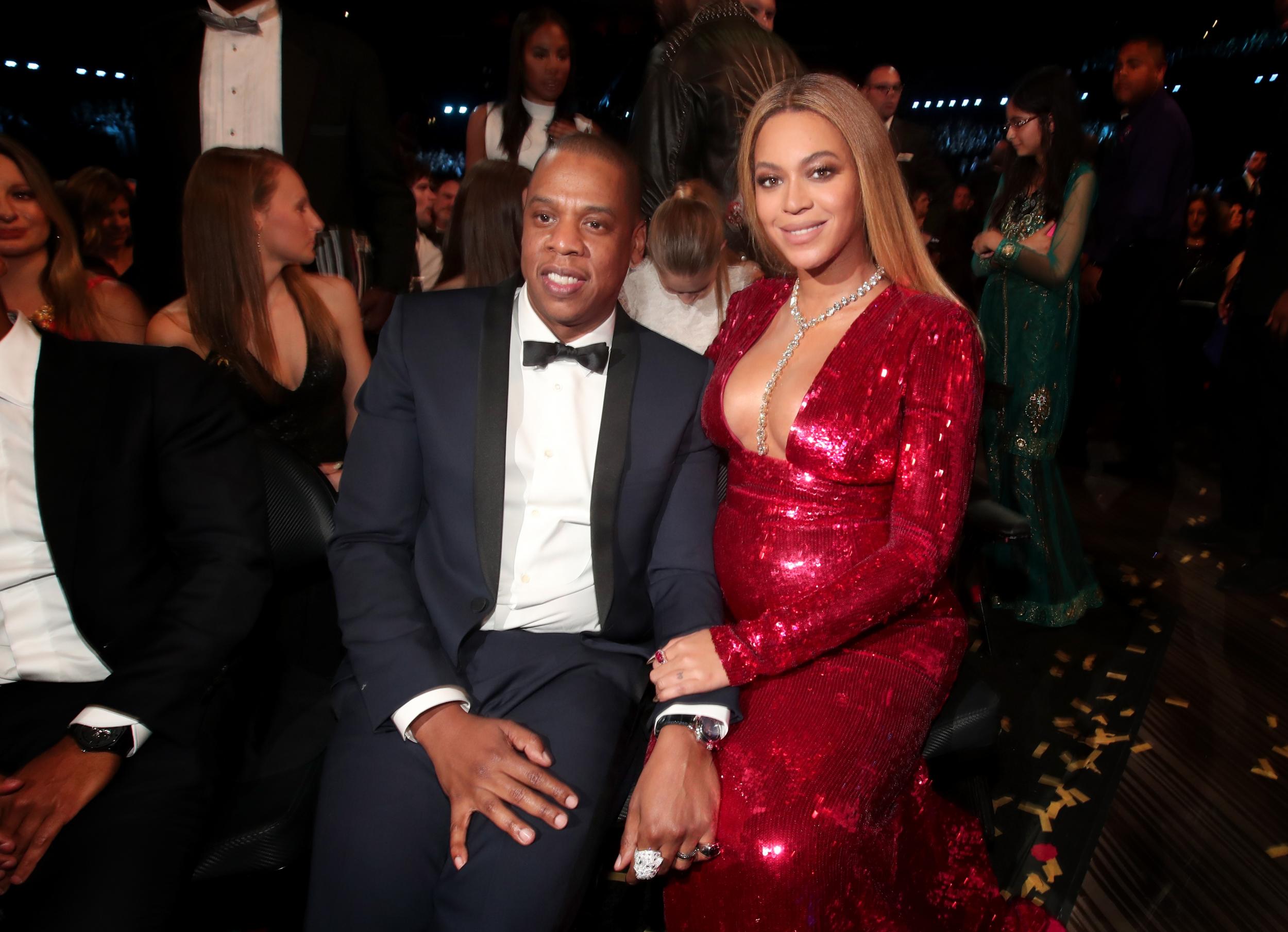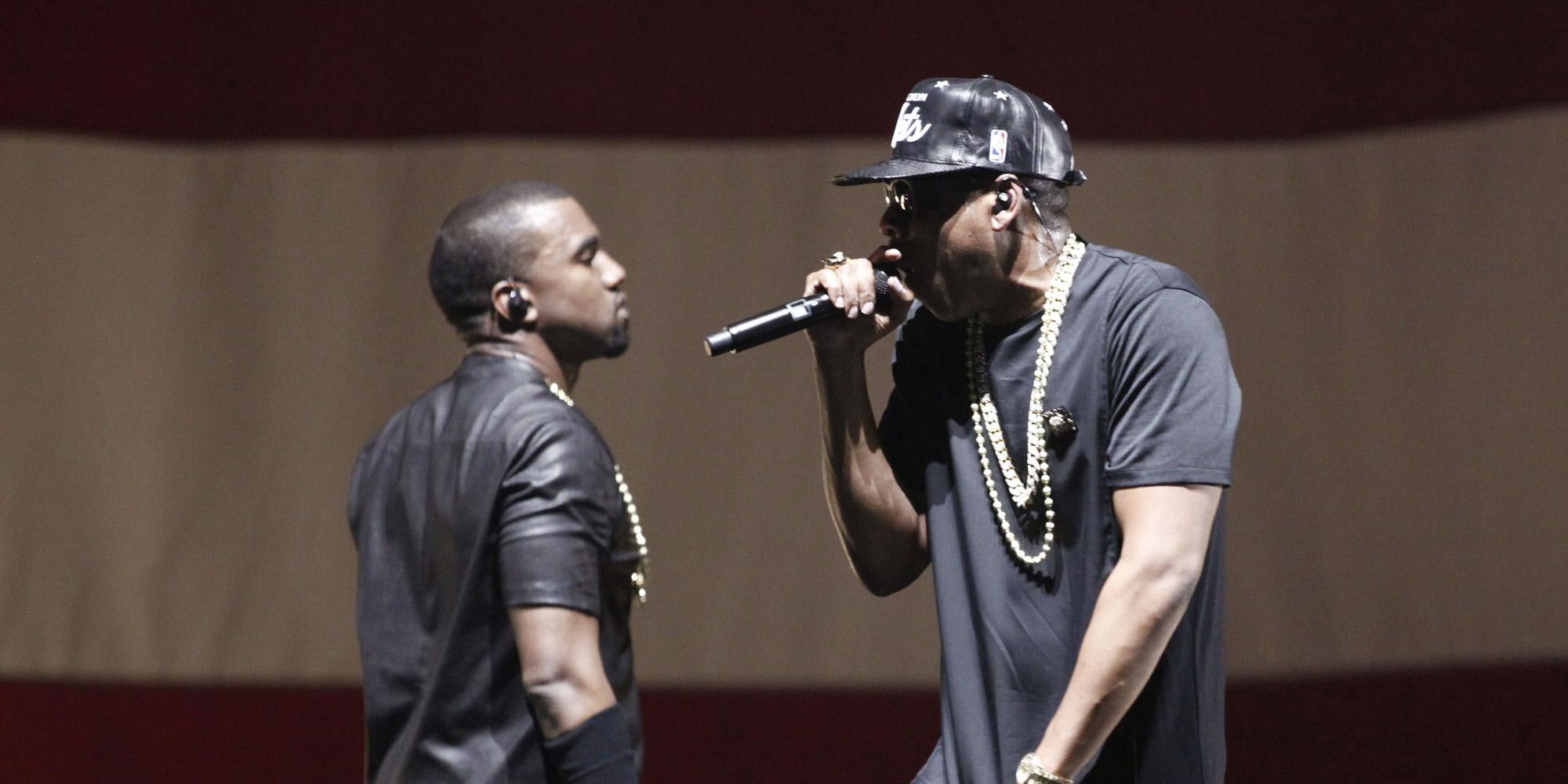How the confessions are pouring out on Jay-Z's new album '4:44'
Jay-Z has never been as naked as he is on his 13th studio album, which is out on the streaming service Tidal

Your support helps us to tell the story
From reproductive rights to climate change to Big Tech, The Independent is on the ground when the story is developing. Whether it's investigating the financials of Elon Musk's pro-Trump PAC or producing our latest documentary, 'The A Word', which shines a light on the American women fighting for reproductive rights, we know how important it is to parse out the facts from the messaging.
At such a critical moment in US history, we need reporters on the ground. Your donation allows us to keep sending journalists to speak to both sides of the story.
The Independent is trusted by Americans across the entire political spectrum. And unlike many other quality news outlets, we choose not to lock Americans out of our reporting and analysis with paywalls. We believe quality journalism should be available to everyone, paid for by those who can afford it.
Your support makes all the difference.When rapper self-mythologising was in its infancy, Jay-Z was its most faithful student. He absorbed the art of the boast, and built on that to create one of pop’s most fascinating characters: the street-corner hustler turned multimillionaire, slick and unbothered. Complex emotions often formed the foundation of his tales of ascendancy, but his greatest talent was making his path seem smooth and inevitable. No matter how high the stakes, he remained cold as ice.
When you are on top, or racing there, this is an unimpeachable approach. But when you’ve been reigning for a while, it can come to seem despotic, ungenerous, false. When your equally famous wife lays waste to that manicured image with an album full of personal, musical and political fire, continuing with the old way of doing things is not an option. Evolve or disappear. Find new life or accept death.
As an elder statesman – recently the first rapper to be enshrined in the Songwriters Hall of Fame – Jay Z would have been forgiven for tapping out and letting silence be a kind of victory. Only extreme emotional-spiritual catharsis or extreme stripped-down intimacy would make for a worthwhile comeback.
On the confidently vulnerable 4:44, his 13th studio album and first in four years, he has chosen both. Viewed from different angles, 4:44 (Roc Nation) is a long-simmering, eyes-downcast confession; a relaxing of muscles that have been tense for decades; the return of a rule-rewriting mastermind as a moralist and occasional scold; a marketing ploy intended to bolster two second-tier businesses, the streaming service Tidal and the phone company Sprint. (For now, at least, you need one or both to listen to the album, without seeking out a bootleg.)

It is also the first Jay-Z album in a decade that doesn’t pretend to be competing in the present moment. It is the sound of a 47-year-old aesthete working at his own pace, dismantling his facade and reminding himself of all the natural poignancy that the bluster has been obscuring.
“I fall short of what I say I’m all about,” he says on the title track, his apology to his wife, Beyoncé, for the indiscretions that led her to publicly shame him. The album begins with “Kill Jay Z”, an extended tsk-tsk to himself. “You can’t heal what you never reveal,” he raps. “You know you owe the truth/ To all the youth that fell in love with Jay-Z.”
And so the confessions, or certainly what appear to be confessions, pour out.
Yes, he cheated on Beyoncé (the title track, among others); yes, he’s tried therapy (“Smile”); yes, he stabbed executive Lance Rivera back in 1999 (“Kill Jay Z”); yes, his father’s side of the family was darkened by abuse (“Legacy”); yes, his mother is gay, and was in the closet for decades (“Smile”); yes, he’s fed up with Kanye West’s scattershot antics (“Kill Jay Z”, among others).
That is, assuming everything here is true, and not just the second instalment of a multi-album musicanovela in which he and his wife portray bitter lovers bound together by fate, fame and farce.

Jay Z has been this candid before, but never quite this naked. These aren’t stories told to fortify a magisterial image but rather the exhale of a long-held breath.
Enjoy unlimited access to 100 million ad-free songs and podcasts with Amazon Music
Sign up now for a 4 month free trial (3 months for non-Prime members)
Enjoy unlimited access to 100 million ad-free songs and podcasts with Amazon Music
Sign up now for a 4 month free trial (3 months for non-Prime members)
In some plain narrative ways, 4:44 is a companion piece to Beyoncé’s Lemonade.
On the title track, Jay-Z is vividly self-critical: “I’ve seen the innocence leave your eyes/ I still mourn this death,” he tells his wife.
But the two albums also share an emphasis on black self-sufficiency – on Lemonade, the argument was sociopolitical; here, it’s largely financial. On “The Story of OJ”, Jay-Z raps about cross-generational wealth – passing his art collection down to his children – with the same fervour and lyrical gambit he once used to rap about amassing personal wealth (on “U Don’t Know” in 2001). The kingpin is now just a vessel for tomorrow’s dreams.
The whole of 4:44 was produced by No ID, who produced much of Common’s essential work, and who prepared a sample-driven, skin-and-bones, slightly greasy palette for Jay-Z to rap over. Most of the album hovers between 80-90 beats per minute, but feels slower, thanks to the way No ID forgoes crispness in favour of beats that slur, drag and bleed. There’s also patina on the vocals. Nothing gleams – not the beats, not the words, not the feelings.
The relative sparseness acts as suction: There are barely any distractions. It’s almost like an unplugged album, a kind of platonic raw course of rapper, producer, sample and beat. In places, it suggests a bare-bones counterpoint to one of Jay-Z’s masterworks, The Blueprint, from 2001, which relied on the steroidal soul-informed production of West and Just Blaze to echo Jay-Z at his most conceited.
Ornamentation has long served Jay-Z well, so the lack of glamour here is striking. Part of the thrill of listening to him has been how lustrously he paints the unattainable. That underneath it all is a man full of regret is both obvious and, at times, a bit deflating. When he laments not investing in the now-redeveloped Brooklyn neighbourhood Dumbo on “The Story of OJ”, it’s not clever, just a gripe. And one delivered without much flair.
The qualities that made Jay-Z one of rap’s true savants were his sly wit and the way he threaded himself into the production – few rappers have found more creative ways to disperse their syllables, and sounded tougher and less fatigued while doing it. The Jay-Z of 4:44 isn’t quite there. He’s evolved from dazzling taunts to ruminations that are sometimes snappy and sometimes lumpy. When snappy, though, they’re exhilarating, like the opening of “Caught Their Eyes”, which has the snarl Jay-Z arrived with fully formed on his 1996 debut album, Reasonable Doubt: “I survived reading guys like you/ I’m surprised y’all think y’all can disguise y’all truths.”
At this stage of his career, though, keeping up with the Migos would be a fool’s task. He’s a veteran, and it shows: On three songs, he’s baffled about how the younger generation uses Instagram as a tool of exaggerated street theatre. And while the Jay-Z of ten years ago would have been improvising his way through Young Thug and Playboi Carti anti-flows both as an exercise in hubris and also competitive vim, there’s none of that here.
Rather, he makes a strong case for artistically ageing by drilling down to core principles. As albums of late-career reckoning go, 4:44 isn’t quite Gaye or Sinatra or Cash, but it’s on the path. Uncomfortable truths unearthed, demons shouted down, process refined – even when everything melts away, you can still be ice-cold.
© New York Times
Join our commenting forum
Join thought-provoking conversations, follow other Independent readers and see their replies
Comments